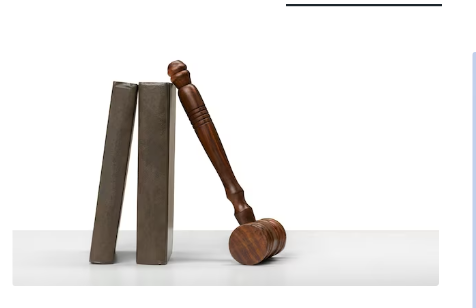****
****
**
****
****
**
The Evolution of Legal Systems: From Ancient Codes to Modern Law
****
Introduction
**Legal systems have a long and fascinating history, evolving over millennia to adapt to the needs and complexities of human societies. This article traces the evolution of legal systems, exploring key milestones from ancient codes to the development of modern law and the global challenges faced by legal systems in the 21st century.
**
1. Early Legal Codes
****
1.1 Hammurabi's Code
**One of the earliest known legal codes is Hammurabi's Code, established in ancient Mesopotamia around 1754 BCE. It provided a set of laws and punishments to govern the Babylonian society.
**
1.2 Mosaic Law
**Mosaic Law, found in the Torah and the Old Testament of the Bible, contains moral, religious, and civil laws that guided the ancient Israelites.
**
2. Development of Legal Systems in Ancient Civilizations
****
2.1 Greek Legal Systems
**Ancient Greece had multiple city-states, each with its own legal system, such as the Athenian legal system, known for its use of citizen juries.
**
2.2 Roman Law
**Roman law greatly influenced Western legal systems, with its emphasis on written law, legal procedure, and the concept of jus civile (civil law).
**
3. Medieval Legal Systems
****
3.1 Canon Law
**Canon law governed the Catholic Church and had a significant impact on medieval legal systems, especially in matters of marriage and religious doctrine.
**
3.2 Common Law
**Common law, developed in England, relied on judicial decisions and precedent, creating a body of case law that shaped legal principles.
**
4. Emergence of Modern Legal Systems
****
4.1 Civil Law
**Civil law systems, derived from Roman law, prioritize comprehensive legal codes and legislative statutes to regulate society.
**
4.2 Napoleonic Code
**The Napoleonic Code, introduced in France in 1804, greatly influenced civil law systems worldwide, emphasizing clarity and accessibility in legal matters.
**
4.3 Common Law and Equity
**Common law systems integrated equitable principles to address injustices not covered by strict legal rules.
**
5. Modern Legal Systems and Constitutional Law
****
5.1 Constitutional Law
**Constitutions serve as the supreme law in many modern legal systems, defining the structure of government and protecting citizens' rights.
**
5.2 International Law
**International law regulates interactions between sovereign states and addresses global issues such as human rights, treaties, and armed conflicts.
**
6. Challenges in the 21st Century
****
6.1 Technology and Cyber Law
**The rise of the digital age has brought new challenges, necessitating the development of cyber laws to address issues like data privacy, online crime, and intellectual property rights.
**
6.2 Globalization and Harmonization
**The interconnectedness of nations calls for increased collaboration and harmonization of legal frameworks to address transnational issues effectively.
**
6.3 Access to Justice and Legal Aid
**Ensuring equal access to justice remains a challenge, particularly for marginalized populations without adequate legal representation.
**
7. Future Trends in Legal Systems
****
7.1 Technology-Driven Legal Solutions
**The future may witness the integration of artificial intelligence, blockchain, and other technologies to streamline legal processes and enhance efficiency.
**
7.2 Environmental and Human Rights Focus
**Legal systems are likely to place increasing emphasis on environmental protection and the safeguarding of human rights in the face of global challenges.
**
Conclusion
**The evolution of legal systems is a testament to the ever-changing needs of societies. From ancient codes to modern law, legal systems have adapted to uphold justice, protect rights, and regulate human interactions. As we navigate the challenges of the 21st century, legal systems must continue to evolve and innovate to address emerging issues and ensure a just and equitable world for all.
****
****









0 Comments